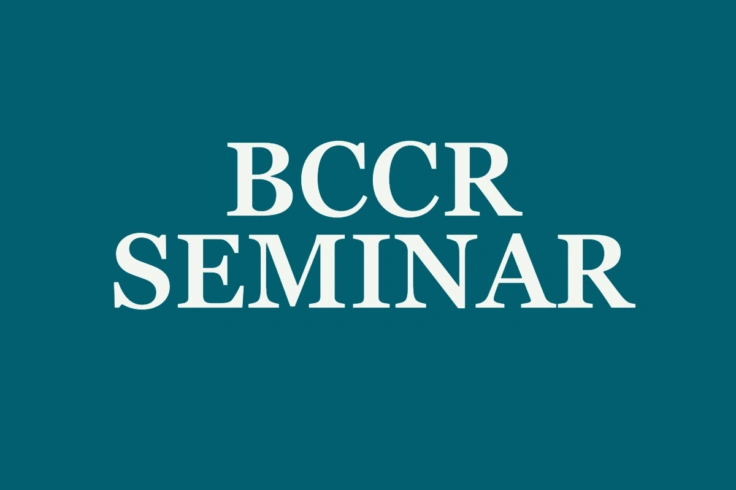Kalender
Prøveforelesning/Trial lecture- “The BCCR role in climate hazards research and addressing societal needs: priorities, opportunities, and challenges“

Tidspunkt
06. september 2024, 10:15-11:00
Sted
Bjerknes Centre - Classroom 4020 (4th floor, Jahnebakken 5).
I forbindelse med utlyst stilling som førsteamanuensis og forskningsleder i marin paleoklima og jordsystemstabilitet inviteres dere til prøveforelesning med:
Stijn de Schepper, fredag 6. september 2024, kl 12:15-13:00. Sted: Bjerknessenteret - Undervisningsrom 4020 (4. etasje, Jahnebakken 5)
Tema for prøveforelesningen er “The BCCR role in climate hazards research and addressing societal needs: priorities, opportunities, and challenges“
Stillingen vil ha arbeidssted ved Bjerknessenteret som forskningsleder i marin paleoklima og jordsystemstabilitet. Tilsetting er ved Institutt for geovitenskap, med tilhørighet til forskingsgruppen «Kvartærgeologi & Paleoklima».
Velkommen!
English:
In connection with the advertised position as Associate Professor and Research Leader in marine paleoclimatology and Earth system stability we invite you to the trial lecture for:
Stijn de Schepper, Friday September 6, 2024, from 12:15 AM to 01:00 PM. Location: Bjerknes Centre - Classroom 4020 (4th floor, Jahnebakken 5).
The theme for the trial lecture is “The BCCR role in climate hazards research and addressing societal needs: priorities, opportunities, and challenges.”
The position will be based at the Bjerknes Centre as a research leader in marine paleoclimate and Earth system stability, with an appointment at the Department of Earth Science and affiliation with the research group “Quaternary Geology & Paleoclimate.”
Welcome!
Flere kalenderoppføringer
Se alle
Stormtracks group meeting
